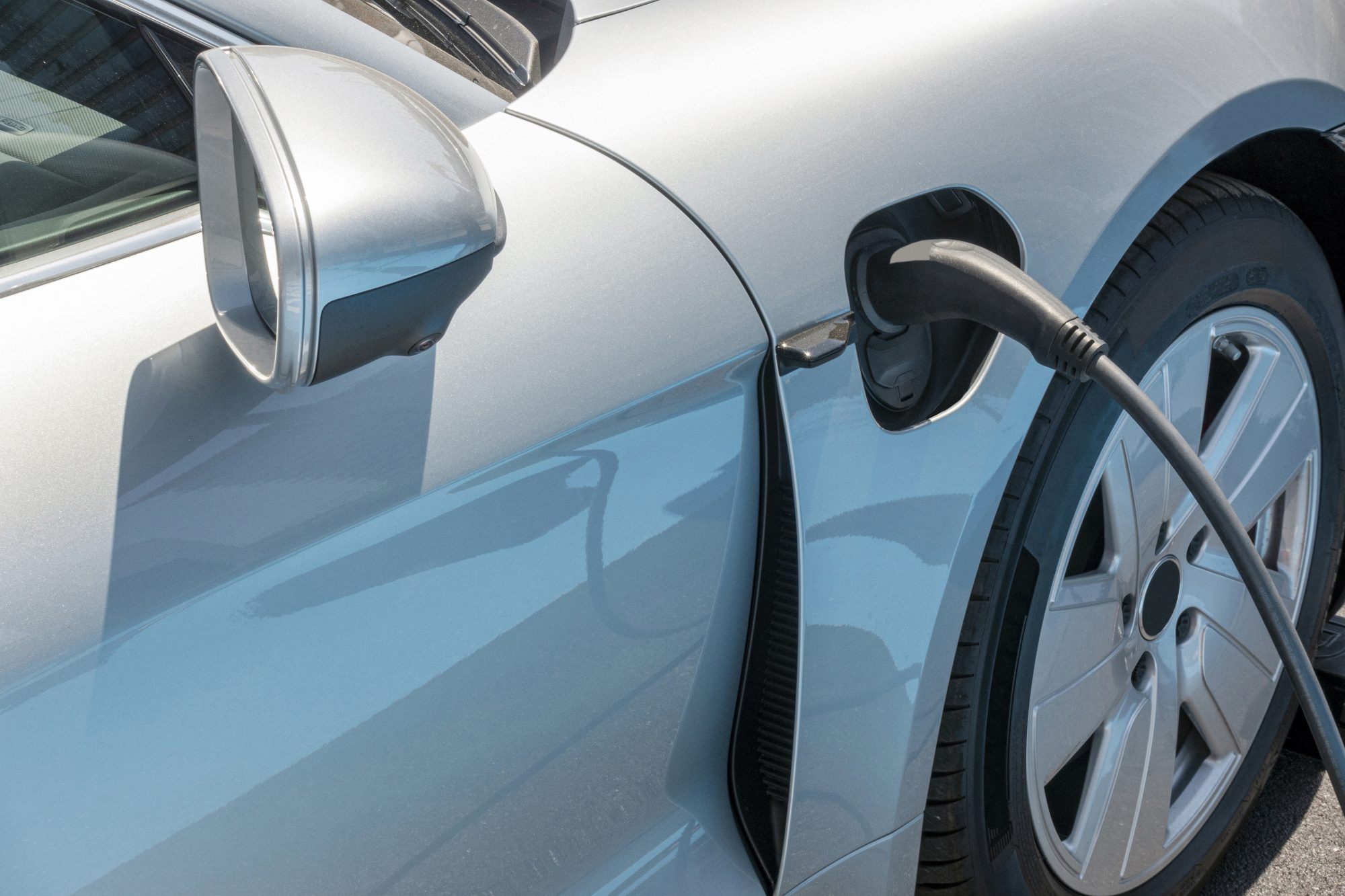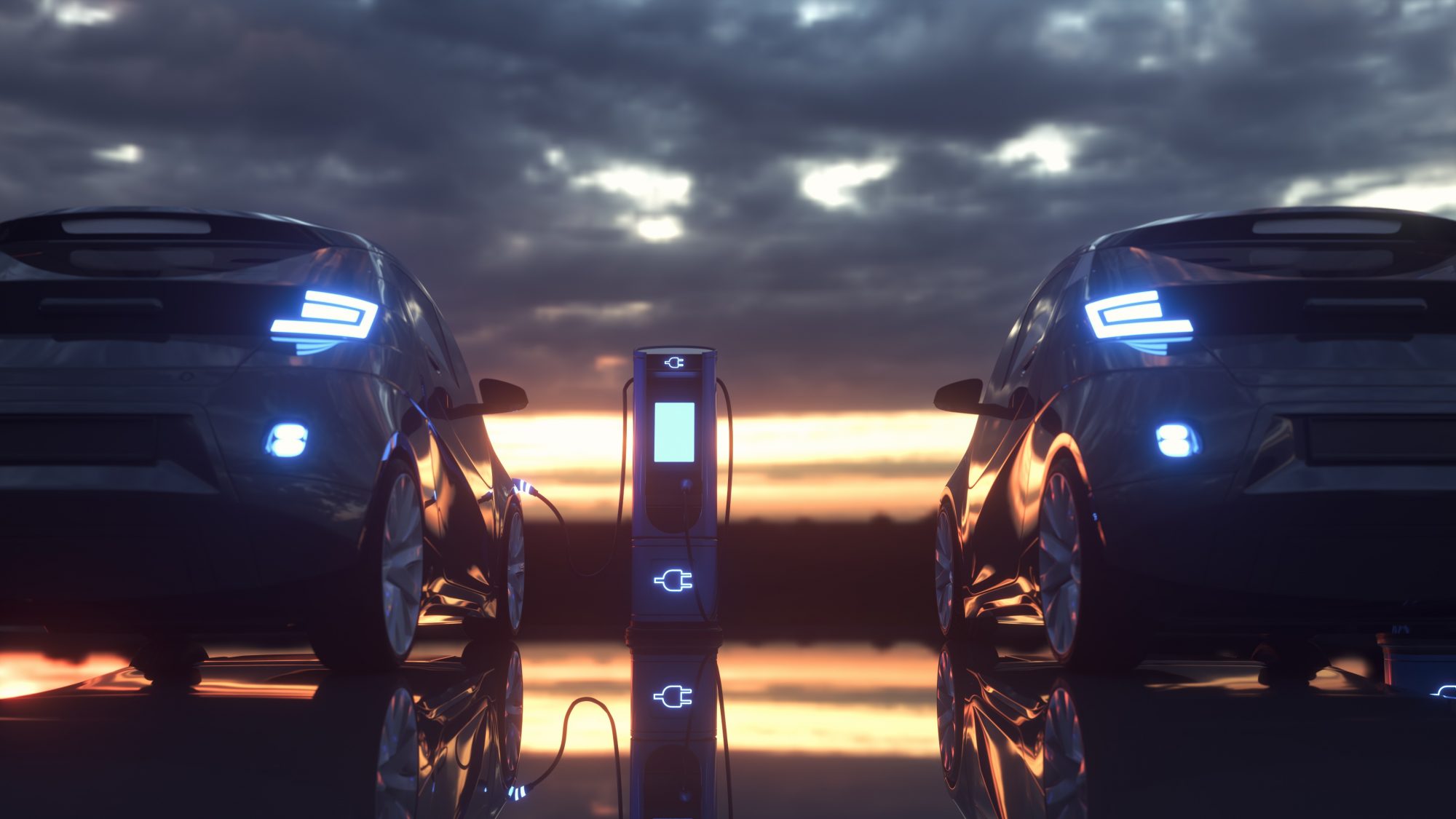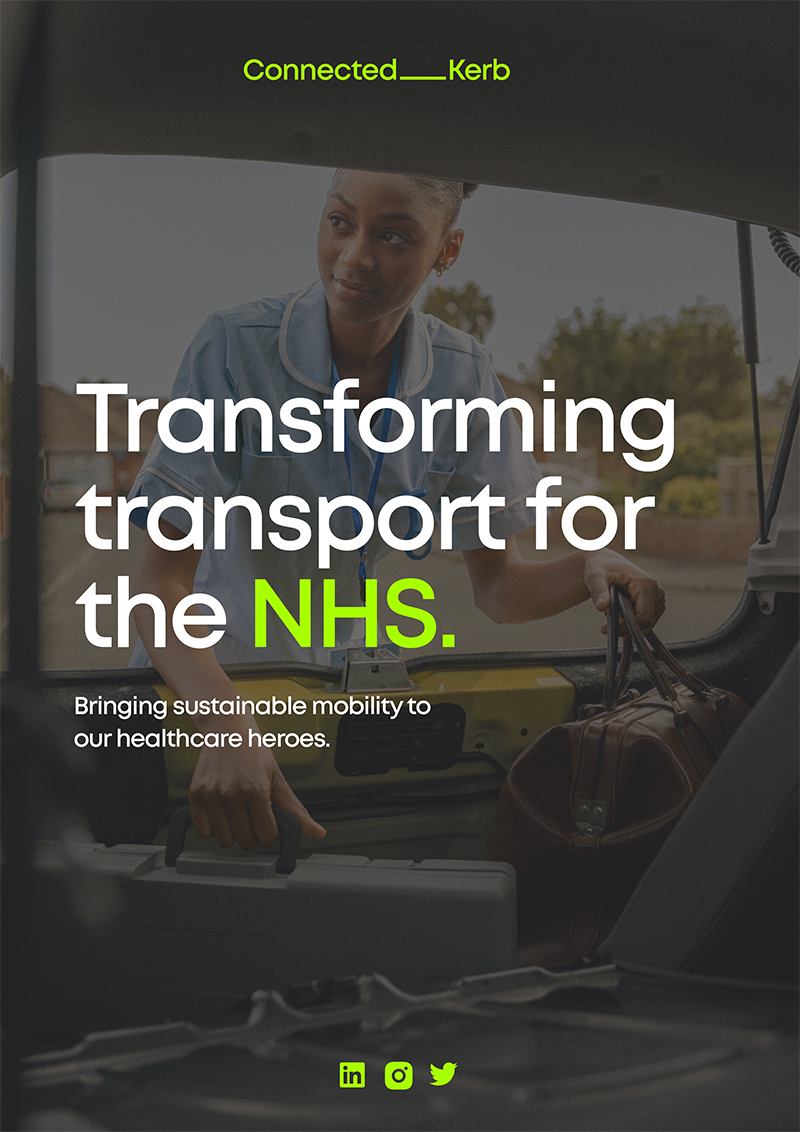Our planet is suffering from the effects of climate change. To tackle this, Connected Kerb aims to charge up the NHS with a reliable network of public charging infrastructure
For years though, much of the country’s electric vehicle (EV) charging network has been in a critical condition with not enough chargers, too many broken ones and a general lack of knowledge about what EV is really about UK efforts to treat it include a ban on sales of new petrol and diesel vehicles from 2030, ambitious net zero targets and of course a major commitment to move to zero-emission vehicles.
With half a million parking spaces across its estate, the NHS offers a real opportunity to show what public sector charging infrastructure can deliver. But not just any charging infrastructure.
The importance of long-lasting charging infrastructure
Charging infrastructure that is long-lasting, easy to use and kind to our planet. Put simply, our 1.2 million healthcare heroes, like everyone else, need charging facilities that just work. Since 2017, Connected Kerb has been undertaking some life-saving CPR on the state of EV charging but much more work needs to be done before it can be given a clean bill of health.
The NHS workforce comprises a myriad of essential roles and responsibilities which require round-the-clock travel; from the MacMillan nurse tending to a cancer patient at their home to the on-call consultant attending a critical incident at three in the morning. Supporting the transport needs of every single one of them means making sure they can focus on their job and enjoy a hassle-free, uneventful journey to and from their final destination, day or night. Over 40,000 locum doctors – the equivalent of supply teachers in the medical profession – currently work in the UK.
That’s a lot of medical professionals who need their wheels full of juice – or in the next few years, charge – to get to work in various locations. Keeping them on the move post-2030 can only be achieved by building a reliable nationwide charging network. If EV is to truly remedy the effects of climate change, we have to make charging inclusive – nobody can get left behind in the switch. Firstly, it has to be affordable. With high energy prices a big symptom of the cost-of-living malaise, providing tariffs that are fair and reasonable is the only way to reduce any discomfort – even more so given other aggravating factors such as everyday parking charges.
The right location can also be therapeutic to EV painpoints. Charging points must be available in rural settings as well as urban centres. A physiotherapist venturing out to a patient in a remote Cornwall village faces a different set of challenges to those in city hospitals. Lower footfall, stretched grid capacity and infrastructure maintenance issues can lead to charging blackspots in remoter areas, severely impacting on the ability of NHS superheroes to get out and about in the countryside. EV charging must also consider the cosmetic consequences.

We all care about how things look, right?
Charging infrastructure is no different and it must preserve the landscape. We’ve all seen some ugly monstrosities that resemble huge fridge freezers, a blight on the surrounding area. Enhancing public spaces and keeping car park clutter to a minimum must remain in the front view mirror of any NHS EV strategy. There is also the accessibility challenge. Of course, plenty of physically impaired people attend a hospital for treatment but what about the staff? In 2021, more than 52,000 people in the NHS workforce (3.7%) declared a disability through the NHS Electronic Staff Record highlighting the importance of making charging easier for EV drivers with physical and cognitive impairments. This includes everything from widened parking bays to charging point height to app accessibility.
Finally, we must equip our medical professionals with the charging tools and education they need and deserve. According to the UK Housing Survey of 2016, over 60% of residents in the country cannot charge their vehicle at home. Many NHS workers live in temporary or rented accommodation where they can’t charge up. Others just don’t have a driveway so will need a reliable network of public charging infrastructure on-street outside their home or wherever they park their car on-site at their place of work.
But if EV is really going to succeed as an antidote to climate change, then we must win hearts and minds of the public through education. Demystifying EV is the active ingredient in any medication to treat EV ambivalence. Soothing fears about range anxiety, promoting EV as a more sustainable way of living and showcasing the financial benefits are all part of the long-term game. If we do this, we can all change the world for good, one charge at a time.
Who are Connected Kerb?
We started by designing a charging point that had the power to change people’s lives but was also beautiful to look at. Something that would compliment its environment and become part of the neighbourhood. Then, in 2018 something big happened. We won a London Civic Innovation Award for our charging point design.
Our name quickly became known within the industry and we began our journey to make EV for the many, not the few. So we gathered some serious technology, design and futurethinking muscle from the four corners of the planet to level up the supply of EV charging infrastructure and change EV accessibility forever. We are now over 120 employees strong. Delivering power to the people with public charging for the 60% of those unable to charge their car at home. We’re reducing charging blackspots in rural areas, ensuring disabled EV users can access reliable charging infrastructure and increasing EV provision in lower-income areas.
We’ve worked with Lambeth Borough Council to install charging points where toxic air quality levels are highest and undertaken the UK’s first public smart charging trial. Constantly collaborating with residential developers, commercial real estate, fleets and local authorities to ensure that the charging infrastructure is there ahead of the ban on the sale of new petrol and diesel vehicles.
We believe we can change the world for good: One charge at a time
We’re a passionate group of people who are proud of what we’ve achieved so far, but this is just the beginning. We will never stop trying to make EV accessible for everyone. Constantly charging forward with new ways of doing things to make the EV experience as easy as turning on a tap or flicking a switch. With an eye always on the road ahead we’re always looking to see what’s round the corner. Taking that knowledge into what we design today, we’re building a driver and client experience that is future proof for tomorrow.

Why choose Connected Kerb?
We want to build a charging network that is in tip-top condition – and boosts everyone’s health by cleaning up air quality. We also:
- Provide unparalleled convenience to drivers that drives extra income for your healthcare facility.
- Install charge points at your health centres and hospitals and take the stress off the visitors and your staff.
- Set charging tariffs for visitors and employees.
- Make your staff stay with you.
- Provide the extra perk of hassle-free, affordable charging and allow your staff to focus on helping patients without worrying about their journey back home after their shift.
- Send the emission-free message and show your commitment to improving your staff’s well-being and health.
Connected Kerb’s turnkey solution
At Connected Kerb, we understand every organisation has unique requirements to consider while installing EV charging infrastructure. We also know how valuable and limited your time is, that’s why we provide an end-to-end service that lets your staff focus on helping patients while we take care of everything else.
Expert support for all
Unlimited advice provided by our experts to help you choose the solution that works best for you and your people. We’ve got you covered. An end-to-end solution from planning regulations, and site selection through funding and installation to world-class maintenance service, we are here to support you every step of the way.
Always there for you
- 24/7 email and phone support so you know employees and visitors will always get help when they need it.
- Multiple funding options suited to you.
- Support with funding application for OZEV grants.
- We also offer various private funding options making installing EV infrastructure available at any budget.
We are here to make it easy
No range anxiety, no outrageous rates and a charging experience that integrates seamlessly with the rhythms and routines of their daily life. We want to make sure every doctor, nurse or porter can report to their shift with no stress about where or when they can charge. We want our GP surgery and walk-in centre staff to just plug in and go to work so they can focus on what they do best – caring for patients.
Is slow charging more efficient?
We know it’s pretty natural to think ‘The quicker the better’ when it comes to charging your vehicle. But here at Connected Kerb, we are thinking a bit more ouf of the box. Rapid charging has it’s place in locations such as on the motorway. You need that charge as quickly as possible so you can continue your long onward journey.
This makes perfect sense. But we also believe that slow-charging – now hear us out here – provides a quicker user experience. Here’s how. By putting our slow-chargers in so-called long-dwell locations – where people park for several hours at a time, such as NHS car parks – we are enabling people to plug in and go and do something else much more important, like leading a trauma team or manning the reception of a cancer unit. When their day of saving lives, helping people and making a difference is over, they can return to their vehicle which is fully charged and ready to take them home to put their feet up.

The funding challenge
Of course money does not grow on trees in any walk of life, let alone in the health sector. EV economics has persisted as a concern for the much of the past decade from the cost of vehicles for drivers to the outlay required to install enough charging infrastructure. With the cost of EVs starting to go in the right direction and the range of vehicles improving, infrastructure is arguably now the primary concern, and moreover, how it can be paid for.
That’s where Connected Kerb can help. We offer a range of funding options from the concession contract where we fully fund the deployment to a managed service where a trust would fund the installation but take a greater share of the profits. The choice would depend on the level of risk a trust is willing to accept in the operation and maintenance of the charging points.
In a nutshell though, our approach is based on long-term value and providing a revenue stream for trusts across the country. Collaboration between the public and private sector remains key to unlocking funding which is why we remain committed to engaging with all stakeholders involved in a Trust’s electrification journey from decision makers to drivers that will do the plugging in.
Building tomorrow’s transport today
The fast pace of technological change can be frightening. A world of driverless cars and flying taxis can be as fearful as it is fanciful. But here at Connected Kerb, we are not getting too carried away with things. We still innovate, we still dream and we aim to inspire. But we are realistic. What we want to make sure we do is to future proof our solutions so that they do not become obsolete in ten years time.
How do we do this?
Firstly, our solutions are built to outlast other charging infrastructure on the market. The durable design of our charging points helps. But so does the fact that much of the expensive componentry sits underground. Our charging points are modular. This means they come in bits that join together so if there are any problems, you only have to take the part out that has the problem, not the whole thing.
In practice, this means you don’t have to dig up the ground multiple times and on-site disruption is kept to a minimum. Now here’s the best bit. Who can predict what transport technologies might exist in the future? There are however many emerging trends that we are making sure our charging points can support in the future.
In fact, our charging points will no longer be just charging points. They will support 5G, Internet of Things devices and even air quality sensors. A street USB that uses power and data to connect everyone for good. To learn more about our solutions and arrange an initial chat, please contact: Vicki.Evans@connectedkerb.co.uk
Contact us
Connected Kerb | 51-52 Frith Street London, W1D 4SH | support@connectedkerb.co.uk


